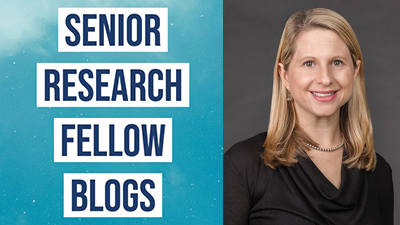‘Ethical communication and listening to low-income publics’ by senior research fellow Katie Place
November 30, 2020

By Katie Place, associate professor of strategic communication at Quinnipiac University
Amidst the COVID-19 pandemic and social unrest this year, organizations have renewed their commitment to diversity, equity and inclusion (DEI), as well as ethical values. This includes the Page Principles of remaining patient, telling the truth, managing for tomorrow, proving it with action and listening to stakeholders.
A forgotten public
Yet again, as organizations engage diverse publics, low-income individuals remain “the forgotten vulnerable” (Patel et al., 2020). Despite their “forgotten” status, approximately 10.5 percent of the U.S. population — 34 million people — live in poverty, earning less than $12,760 a year (census.gov; hhs.gov). Low-income publics have been particularly disadvantaged by a lack of affordable insurance or healthcare and a lack of adequate housing or stable work conditions. They often have no opportunities to work safely from home or take sick leave (Patel et. al., 2020; Vesoulis, 2020). These disadvantages are compounded by the increased mental health distress of such financial uncertainty (Patel et al., 2020).
Economic inequality must be accounted for by strategic communicators, politicians and public health professionals. It is especially important when they are planning and implementing response efforts (Vesoulis, 2020) and when developing sustainable communications plans. Organizations must renew or establish overarching commitments to engaging in ethical dialogue, respectful accommodation and active listening to address the needs of those living in poverty.
For years, this area of focus has had a profound effect on my scholarship and practice. My 2017 Arthur W. Page Legacy grant work on mobile and social media engagement of low-income publics reinvigorated scholarship on public relations and low-income publics after nearly two decades of silence on the topic.
Renewing a scholarly commitment
Renewing my commitment to supporting low-income publics through scholarship, my work as a Page Center senior research fellow will continue on the path set in 2016. My funded research is exploring the topic of listening. I map how listening occurs in public communication contexts to respectfully and ethically engage low-income publics who are often excluded from mainstream social, economic or cultural opportunities. Whereas previous research (e.g., Macnamara 2016a, 2016b, 2018) prescribed an architecture of listening within the strategic communication industry, my research is examining how organizations are applying such an architecture as guided by ethics — particularly by an ethic of care (e.g., Gilligan, 1982) — to respectfully engage low-income and marginalized publics.
This year marked my first as a senior research fellow. My work in 2020 largely focused on coordinating this year’s Page/Johnson Legacy Scholar grant competition on organizational listening. The call explores Page Principle #4: Listen to Stakeholders, which urges public communicators to listen effectively and engage a diverse range of stakeholders through inclusive dialogue.
Of the 40+ applications received and reviewed, 12 research projects were chosen for funding, reflecting a range of methodological approaches and topics. Ultimately, the completed research projects will contribute to an edited book on advancing theoretical and practical approaches to listening in public relations – in addition to scholars’ own white papers, peer-reviewed journal articles, and conference presentations.
Ethics research and teaching
While carrying out my work for the Page Center, I enjoyed the opportunity to publish or present my previous Page Center-funded ethics and low-income publics research at local, state, and national venues. Most recently, a paper from my 2016/2017 Page/Johnson Legacy Scholar grant titled “Troubling dialogue and digital media: A subaltern critique” is forthcoming in Social Media + Society with co-author Erica Ciszek, Ph.D. of the University of Texas at Austin.
Additionally, another paper from the grant titled “Ethical Engagement of Marginalized Publics on Social Media” was presented at the 2020 International Public Relations Research Conference (IPRRC) in March. It was an honor to earn a 2020 Institute for Public Relations W. Ward White Award for Top Three Papers of Practical Significance.'
On a day-to-day basis, it is enjoyable to teach a range of public relations courses to my Quinnipiac University undergraduate and graduate students. I regularly teach STC201: Writing for Strategic Communication and have recently ventured into teaching STC504: Public Relations Law and Ethics. It has been thrilling to incorporate the Center’s ethics teaching modules into the course.
Ultimately, I know my work with the Arthur W. Page Center on listening, ethics, and low-income publics will inform and enhance my teaching - and hopefully inspire new generations of ethics, listening, and social-justice minded scholars too.
Katie Place is a senior research fellow at the Page Center and associate professor of strategic communication at Quinnipiac University. She has been a Center research scholar since 2016.

